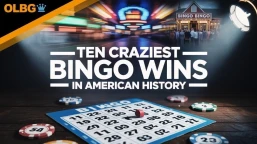
With 30+ years in racing and betting, Darren helps punters develop their skills. As OLBG’s Tipster boss and expert guide, he turns insight into winning strategy.
 "There
are Lies, Damn Lies, and Statistics"- Mark
Twain
"There
are Lies, Damn Lies, and Statistics"- Mark
Twain
Statistics, used for sports and sports betting, have their fervent supporters and their equally fervent detractors.
On OLBG the betting school is packed with statistics, systems, and strategies and many swear by them.
This blog isn't aimed at either supporters or detractors, but merely addresses sports statistics in general, and is relevant whatever camp you sit in.
There are 3 stats questions:
- What they might mean.
- When to avoid them
- When they might be useful.
Much like the way a politician conveys the messages he/she wants to convey, the listener will form an opinion which could be in support of the statements, or against them.
Stats Never Lie
If you are in possession of a statistic - then that statistic is TRUE. It's based on past recorded facts and as it stands cannot be challenged for the basic statistic that it represents. Let's get that clear from the outset. I'm talking about an actual statistic, and not someone's opinion or conclusion based on same.
What do I mean by that? Let's use a hypothetical, but far from unlikely, example.
Let's say in the space of a ten-year period, a certain handicap race was won every year by a colt or gelding, and there's a filly in this year's renewal that stands out on form. You could form an undeniable statistic that "In the last ten years, no filly has won this race". That statistic as it stands could not be challenged - period - because it is true. It's fact.
Why Examining a Statistic is More Important Than the Statistic Itself
I can already hear you asking "How can that be? If you say a statistic is a truth, how can examining that truth bring about anything different".
Here's why. Let look at our example again:
"In the last ten years, no filly has won this race".
Let's say we looked at that race more closely. Let's say we found out that the first seven of the previous ten years the race wasn't even open to fillies, and let's say in the last three years when it was open to fillies only one filly ran in the race and was an outsider with little form to give it a chance.
All of a sudden that "In the last ten years, no filly has won this race" becomes a useless statistic when assessing the chances of this year's filly because only one has ever run in the race and had little chance anyway. Yet you still cannot challenge the original statistic, because the statistic as it stands is completely true.
What This Means
This is one reason why those who are against statistics are so vehement in their opinions of them. Statistics can be interpreted, just as a politician may interpret facts or stats in their favour. When it comes to making statistics useful for you, it is highly recommended that you never blindly take a statistic at its face value. Always look deeper. Look into what a statistic really means, how to logically assess it, before deciding that a statistic is a useful one in terms of evaluating of any selection in an event.
On OLBG we have a few members who do an excellent job of assessing using statistics: Micko70 for Horse Racing in particular provides excellent stats analysis. His blogs are always well worth a read.
Jim Brown is a former betting industry employee with over 30 years of experience in the industry. He's been an OLBG member since 2010 and is a frequent contributor to the forums and the blog pages.



